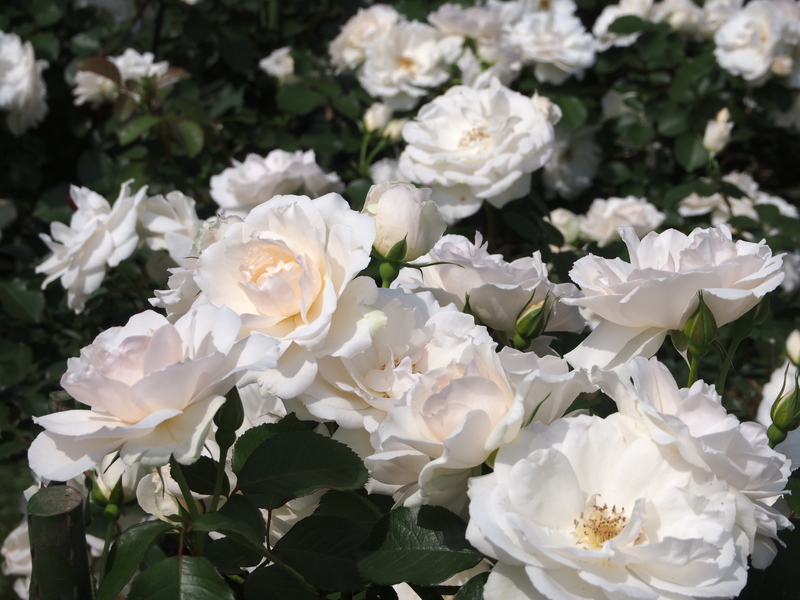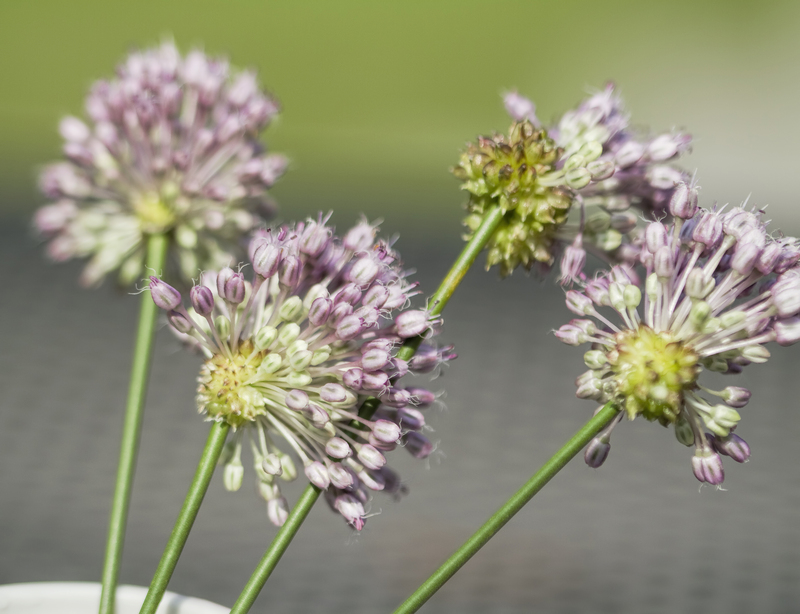The Ultimate Guide to Herb Garden Mastery
Posted on 19/09/2025
The Ultimate Guide to Herb Garden Mastery
Imagine stepping into your backyard or kitchen and snipping fresh basil or rosemary moments before preparing a delicious meal. Having your very own herb garden isn't just sustainable--it's satisfying, aromatic, and culinary magic at your fingertips. Welcome to The Ultimate Guide to Herb Garden Mastery, your comprehensive resource for cultivating an abundant, flourishing herb garden--whether indoors, outdoors, or in containers!
Why Grow Your Own Herbs?
Growing your own herbs is more than a hobby--it's an empowering step towards self-sufficiency and healthy living. Here are several compelling reasons to master herb gardening:
- Freshness and Flavor: Nothing compares to plucking fresh herbs for your recipes.
- Cost-effective: Growing herbs saves money compared to frequently buying bundled herbs from the store.
- Health Benefits: Herbs are packed with antioxidants, vitamins, and unique flavors that elevate any meal.
- Eco-friendly: Reduces packaging waste and transportation emissions.
- Therapeutic: Gardening is proven to reduce stress and boost mood.

Choosing the Best Location for Your Herb Garden
Location is crucial to herb gardening success. Consider these options as you begin your journey towards herb garden mastery:
Outdoor Herb Gardens
- Sunlight: Most herbs require at least 6-8 hours of direct sunlight daily.
- Drainage: Choose locations where water does not pool, as herbs dislike soggy roots.
- Protection: Consider planting near a wall or in raised beds to protect from harsh winds and pests.
Indoor Herb Gardens
- Kitchen Windowsills: A sunny south-facing window works best.
- Use Grow Lights: If sunlight is limited, supplement with LED grow lights designed for herbs.
- Ventilation: Ensure airflow to prevent mold and mildew.
Container Herb Gardens
- Portability: Move pots to optimal sunlight throughout the seasons.
- Space-Saving: Perfect for balconies, patios, or small yards.
- Control: Containers allow you to tailor soil and water to each herb's needs.
Essential Herbs for Beginners
If you're new to cultivating herbs, starting with easy-to-grow varieties ensures early success. The following are top choices for beginner gardeners:
- Basil: Perfect for Italian dishes, easy and fast to grow.
- Mint: Hardy and prolific (best in pots to contain spread).
- Parsley: Versatile and slow to bolt.
- Chives: Mild onion flavor, resilient even for novices.
- Rosemary: Aromatic and drought-tolerant.
- Cilantro: Essential for salsas and Asian cuisine, but prefers cooler weather.
- Oregano: Perennial and robust, a staple in Mediterranean cooking.
- Thyme: Woody and fragrant, tolerates drought and neglect.
The Core Principles of Herb Garden Mastery
Understanding Soil and Potting Mix
Soil health is foundational for herb garden success. Here's what you need to know:
- Well-draining soil: Herbs generally detest soggy roots.
- Organic matter: Mix compost or well-rotted manure in your beds or containers.
- Avoid chemical fertilizers: Use natural amendments to keep flavors pure.
- pH Level: Most herbs thrive at a neutral pH (6.0-7.0).
Watering Wisely
- Deep, infrequent watering: Encourage roots to grow deep.
- Check soil moisture: Insert your finger; if dry beyond the first inch, it's time to water.
- Morning watering: Water early to reduce evaporation and leaf disease.
Sun, Shade, and Temperature
- Most herbs love full sun, but some (like mint or parsley) tolerate partial shade.
- Protect from extreme heat: Shade cloth or strategic placement can prevent leaf scorch.
- Monitor temperatures: Bring tender herbs indoors during frost warnings.
Fertilizing for Strong Growth
- Avoid over-fertilizing: Too much can weaken flavor.
- Feed organically: Use compost tea or granular organic fertilizers during the growing season.
- Herbs like thyme and oregano need less feeding than lush, leafy types like basil and cilantro.
Herb Garden Mastery: Planting Strategies & Layouts
Companion Planting
Some herbs benefit (or suffer) when planted together. For successful herb garden layouts:
- Basil and tomatoes: Enhance growth and flavor of both plants.
- Rosemary and Sage: Enjoy similar conditions; avoid pairing with moisture-loving herbs.
- Mint: Always plant in its own container to prevent overtaking your garden.
- Dill and fennel: Keep apart; they can cross-pollinate and affect flavor.
Designing Your Herb Garden
- Formal layouts: Arrange herbs in geometric patterns for aesthetic value.
- Kitchen gardens (potager): Combine herbs with vegetables and flowers for a productive, beautiful plot.
- Vertical gardening: Use wall planters or stacked containers to maximize small spaces.
- Raised beds: Ideal for managing soil quality and drainage.
Propagation and Growing Techniques
Starting Herbs from Seeds
- Seed trays with sterile seed-starting mix help prevent disease.
- Thin seedlings: Keep only the strongest plants.
- Transplant outdoors after the last frost for annual herbs.
Growing Herbs from Cuttings
- Herbs like mint, sage, and oregano root quickly in water or moist potting mix.
- Use clean shears and healthy parent plants for best results.
Dividing Perennial Herbs
- Chives, thyme, and oregano benefit from routine division every few years.
Ongoing Care: Pruning, Harvesting, and Troubleshooting
Pruning for Bushiness and Productivity
- Pinch tips of basil and mint early for fuller plants.
- Remove flower buds unless harvesting seeds (basil and cilantro bolt quickly in heat).
Harvesting Techniques
- Harvest in the morning for peak flavor and aroma.
- Snip no more than 1/3 of the plant at a time to avoid stressing herbs.
- Regular harvesting encourages new growth and delays flowering.
Troubleshooting Common Problems
- Yellow leaves: Could signal overwatering or poor drainage.
- Leggy growth: Usually means insufficient sunlight.
- Powdery mildew: Improve airflow and avoid wetting leaves late in the day.
- Pests: Use neem oil or insecticidal soap for aphids and spider mites.
Preserving and Using Your Homegrown Herbs
The journey of herb garden mastery culminates in enjoying your flavorful, organic harvest in countless ways:
- Fresh use: Chop and add at the end of cooking for best flavor.
- Drying: Tie small bundles, hang upside-down in a cool, dark place.
- Freezing: Freeze chopped herbs in olive oil or water in ice cube trays.
- Infusions: Make herb vinegars, oils, and butters for a culinary punch.
- Teas: Herbal teas from mint, chamomile, and lemon balm are soothing and delicious.
Advanced Tips for Herb Gardening Pros
Succession Planting
- Sow seeds every few weeks for continual harvests of fast-growing herbs like cilantro and basil.
Companion Planting Beyond Herbs
- Herbs like dill and basil attract pollinators and deter pests, benefiting nearby vegetables and flowers.
Grow Unusual Culinary and Medicinal Herbs
- Lemongrass: Excellent in containers for Asian cuisine.
- Sorrel: Tangy, lemony leaves for salads and soups.
- Stevia: A natural sweetener for health-conscious gardeners.

Frequently Asked Questions About Herb Gardens
How much sun do herbs need?
Most culinary herbs need at least 6 hours of sunlight daily. Some shade-tolerant herbs (like mint and parsley) will grow in less.
What's the best way to water herbs?
Water deeply, allowing the soil to dry out between sessions. Avoid wetting foliage to minimize disease.
Can you grow herbs year-round?
Yes! Indoors, many herbs thrive all winter with proper lighting, warmth, and humidity. Outdoors, cold-hardy herbs may survive mild winters.
How do you keep herbs from taking over the garden?
Plant aggressive herbs like mint, oregano, and lemon balm in containers. Divide perennials regularly to control spread.
Conclusion: Achieve Herb Garden Mastery
With passion, patience, and the practical tips above, herb gardening mastery is well within your grasp. Whether you're a culinary enthusiast, a health-conscious cook, or a gardening novice, growing your own herb garden is a rewarding adventure! Harvest the flavor, fragrance, and joy that only a thriving home herb garden can provide. Ready to dig in? Start planting--and soon, you'll savor the benefits of your own herb garden mastery every day.
Latest Posts
Grow Your Privacy with These 9 Fast-Growing Hedges
The Ultimate Guide to Herb Garden Mastery
Elevate Your Outdoor Experience With Stunning Garden Seating



